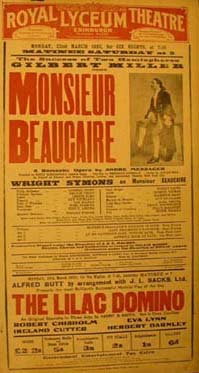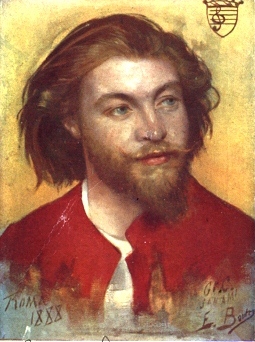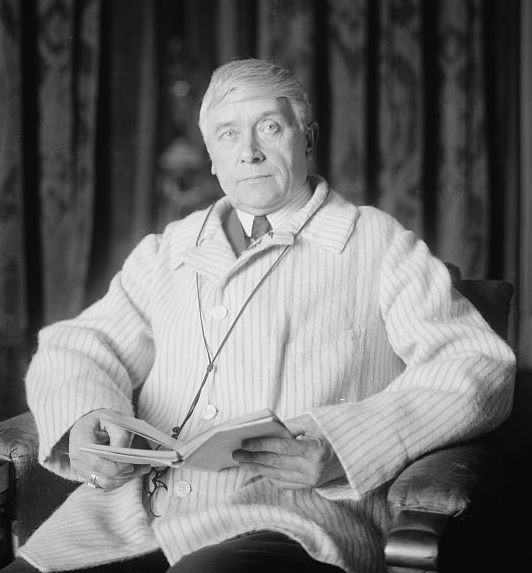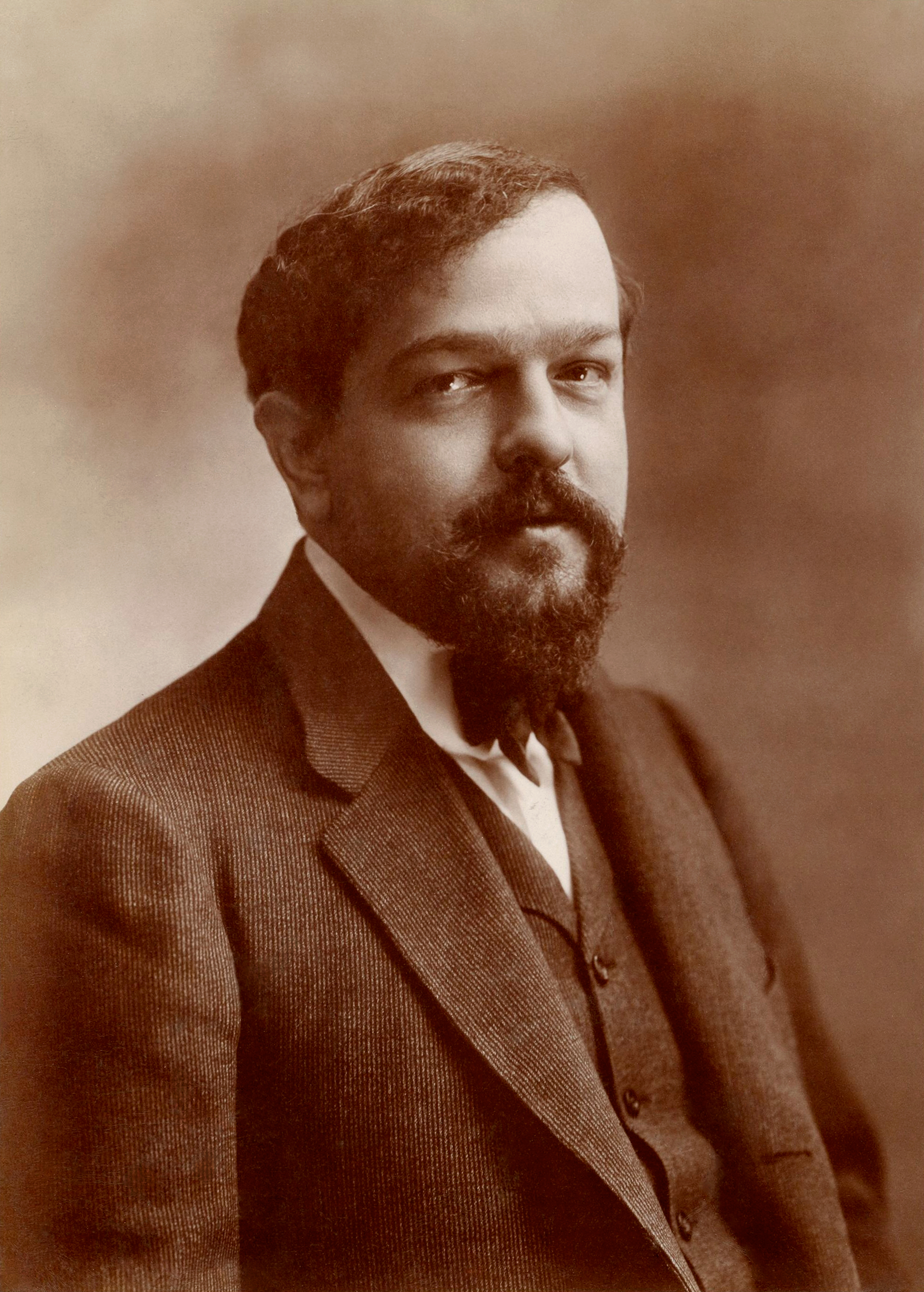|
André Messager
André Charles Prosper Messager (; 30 December 1853 – 24 February 1929) was a French composer, organist, pianist and conductor. His compositions include eight ballets and thirty , opérettes and other stage works, among which his ballet (1886) and (1898) have had lasting success; (1897) and (1919) were also popular internationally. Messager took up the piano as a small child and later studied composition with, among others, Camille Saint-Saëns and Gabriel Fauré. He became a major figure in the musical life of Paris and later London, both as a conductor and a composer. Many of his Parisian works were also produced in the West End theatre, West End and some on Broadway theatre, Broadway; the most successful had long runs and numerous international revivals. He wrote two operatic works in English, and his later output included Musical theatre#Early 20th century, musical comedies for Sacha Guitry and Yvonne Printemps. As a conductor, Messager held prominent positions in ... [...More Info...] [...Related Items...] OR: [Wikipedia] [Google] [Baidu] |
Messager André Compositeur 1921
Messager is a surname. Notable people with the surname include: * André Messager (1853–1929), French composer and musician * Annette Messager (born 1943), French artist known for her installation art {{surname ... [...More Info...] [...Related Items...] OR: [Wikipedia] [Google] [Baidu] |
Royal Opera House
The Royal Opera House (ROH) is a theatre in Covent Garden, central London. The building is often referred to as simply Covent Garden, after a previous use of the site. The ROH is the main home of The Royal Opera, The Royal Ballet, and the Orchestra of the Royal Opera House (now known collectively as the Royal Ballet and Opera). The first theatre on the site, the Theatre Royal (1732), served primarily as a playhouse for the first hundred years of its history. In 1734, the first ballet was presented. A year later, the first season of operas, by George Frideric Handel, began. Many of his operas and oratorios were specifically written for Covent Garden and had their premieres there. The current building is the third theatre on the site, following disastrous fires in 1808 and 1856 to previous buildings. The façade, foyer, and auditorium date from 1858, but almost every other element of the present complex dates from an extensive reconstruction in the 1990s. The main auditorium ... [...More Info...] [...Related Items...] OR: [Wikipedia] [Google] [Baidu] |
Marist Brothers
The Marist Brothers of the Schools, commonly known as simply the Marist Brothers, is an international community of Catholic Church, Catholic religious institute of Religious brother, brothers. In 1817, Marcellin Champagnat, a Marist priest from France, founded the Marist Brothers with the goal of educating young people, especially those most neglected. While most of the brothers minister in school settings, others work with young people in parishes, religious retreats, spiritual accompaniment, at-risk youth settings, young adult ministry, and overseas missions. Since the 2010s, several instances of sexual abuse within Marist-run institutions have been reported in Chile, Australia, and New Zealand. History St. Marcellin Champagnat decided to start an institute of consecrated Brother (Catholic), brothers in the BVM(RC), Marist tradition, building schools for the underprivileged where they might learn to become "Good Christians and Good people". The decision was inspired by an event, ... [...More Info...] [...Related Items...] OR: [Wikipedia] [Google] [Baidu] |
Montluçon
Montluçon (; ) is a commune in central France on the river Cher. It is the largest commune in the Allier department, although the department's prefecture is located in the smaller town of Moulins. Its inhabitants are known as ''Montluçonnais''. The town is in the traditional province of Bourbonnais and was part of the mediaeval duchy of Bourbon. Geography Montluçon is located in the northwest of the Allier department near the frontier of the Centre-Val de Loire and Nouvelle-Aquitaine regions. Montluçon is linked with surrounding regions and towns via four main road axes, plus the highway A71 from Orléans to Clermont-Ferrand; through a railway linking in the North Vierzon then Paris (3-5h). Formerly the canal de Berry linked Montluçon towards the north. Montluçon is south of Bourges, from Paris, from Clermont-Ferrand, (3h) from Lyon, (2h) from Limoges and from the Atlantic coast. Montluçon is close to the '' Méridienne verte'' (an architectural project mark ... [...More Info...] [...Related Items...] OR: [Wikipedia] [Google] [Baidu] |
Louise (opera)
''Louise'' is a "musical novel", or "", in four acts and five scenes by Gustave Charpentier. It can be considered an opera. The composer himself penned the French libretto with contributions from Saint-Pol-Roux, a symbolist poet and the inspiration of the surrealists. It is an atmospheric story of working-class life in Paris, with the city itself invoked along the way: young Louise, a seamstress living with her parents, loves Julien, an artist; she desires freedom, associated in her mind with him and the city. (Charpentier would later write a sequel, the opera '' Julien'', describing the artist's aspirations.) Musically the work is considered an example of '' verismo'', and marks the beginning of naturalism in French opera. Performance history ''Louise'' was premiered on 2 February 1900 at the Salle Favart by the Opéra-Comique conducted by André Messager in a production by Albert Carré. It was successful, reaching its 100th performance just over a year later; the 500th perf ... [...More Info...] [...Related Items...] OR: [Wikipedia] [Google] [Baidu] |
Gustave Charpentier
Gustave Charpentier (; 25 June 1860 – 18 February 1956) was a French composer, best known for his opera ''Louise (opera), Louise''.Langham Smith R., "Gustave Charpentier", ''The New Grove Dictionary of Opera.'' Macmillan, London and New York, 1997. Life and career Charpentier was born in Dieuze, Moselle (department), Moselle, the son of a baker, and with the assistance of a rich benefactor he studied violin at the conservatoire in Lille before entering the Paris Conservatoire in 1881. There he took lessons in composition under Jules Massenet (from 1885) and had a reputation of wanting to shock his professors. In 1887 he won the Prix de Rome for his cantata ''Didon''. During the time in Rome that the prize gave him, he wrote the orchestral Suite (music), suite ''Impressions d'Italie'' and began work on the libretto and music for what would become his best-known work, the opera ''Louise (opera), Louise''. Charpentier returned to Paris, settling in Montmartre, and continued to comp ... [...More Info...] [...Related Items...] OR: [Wikipedia] [Google] [Baidu] |
Grisélidis
''Grisélidis'' is an opera (described as a ' conte lyrique') in three acts and a prologue by Jules Massenet to a French libretto by Armand Silvestre and Eugène Morand. It is based on the play by the same authors first performed at the Comédie-Française on 15 May 1891, which is drawn from the medieval tale of 'patient Grissil'. The story is set in 14th century Provence, and concerns the shepherdess, Grisélidis, and a number of attempts by the Devil to lure her into infidelity. Grisélidis' loyalty to her husband, The Marquis, is strong, however, and the devil is vanquished. Massenet began composition in 1894, completing it by the end of that year, but revising it in the autumn 1898 prior to discussing a potential production with Albert Carré. It was first performed at the Opéra-Comique in Paris on 20 November 1901, with Lucienne Bréval in the title role. The piece achieved 50 performances in the first six months at the Opéra-Comique, was withdrawn from the repertory ... [...More Info...] [...Related Items...] OR: [Wikipedia] [Google] [Baidu] |
Jules Massenet
Jules Émile Frédéric Massenet (; 12 May 1842 – 13 August 1912) was a French composer of the Romantic music, Romantic era best known for his operas, of which he wrote more than thirty. The two most frequently staged are ''Manon'' (1884) and ''Werther'' (1892). He also composed oratorios, ballets, orchestral works, incidental music, piano pieces, songs and other music. While still a schoolboy, Massenet was admitted to France's principal music college, the Paris Conservatoire. There he studied under Ambroise Thomas, whom he greatly admired. After winning the country's top musical prize, the , in 1863, he composed prolifically in many genres, but quickly became best known for his operas. Between 1867 and his death forty-five years later he wrote more than forty stage works in a wide variety of styles, from opéra-comique to grand-scale depictions of classical myths, romantic comedies, Drame lyrique, lyric dramas, as well as oratorios, cantatas and ballets. Massenet had a g ... [...More Info...] [...Related Items...] OR: [Wikipedia] [Google] [Baidu] |
Pelléas Et Mélisande (opera)
''Pelléas et Mélisande'' (''Pelléas and Mélisande'') is an opera in five acts with music by Claude Debussy. The French libretto was adapted from Maurice Maeterlinck's symbolist play of the same name. It premiered at the Salle Favart in Paris by the Opéra-Comique on 30 April 1902; Jean Périer was Pelléas and Mary Garden was Mélisande, conducted by André Messager, who was instrumental in getting the Opéra-Comique to stage the work. It is the only opera Debussy ever completed. The plot concerns a love triangle. Prince Golaud finds Mélisande, a mysterious young woman, lost in a forest. He marries her and brings her back to the castle of his grandfather, King Arkel of Allemonde. Here Mélisande becomes increasingly attached to Golaud's younger half-brother Pelléas, arousing Golaud's jealousy. Golaud goes to excessive lengths to find out the truth about Pelléas and Mélisande's relationship, even forcing his own child, Yniold, to spy on the couple. Pelléas decides to le ... [...More Info...] [...Related Items...] OR: [Wikipedia] [Google] [Baidu] |
Claude Debussy
Achille Claude Debussy (; 22 August 1862 – 25 March 1918) was a French composer. He is sometimes seen as the first Impressionism in music, Impressionist composer, although he vigorously rejected the term. He was among the most influential composers of the late 19th and early 20th centuries. Born to a family of modest means and little cultural involvement, Debussy showed enough musical talent to be admitted at the age of ten to France's leading music college, the Conservatoire de Paris. He originally studied the piano, but found his vocation in innovative composition, despite the disapproval of the Conservatoire's conservative professors. He took many years to develop his mature style, and was nearly 40 when he achieved international fame in 1902 with the only opera he completed, ''Pelléas et Mélisande (opera), Pelléas et Mélisande''. Debussy's orchestral works include ''Prélude à l'après-midi d'un faune'' (1894), ''Nocturnes (Debussy), Nocturnes'' (1897–1899 ... [...More Info...] [...Related Items...] OR: [Wikipedia] [Google] [Baidu] |
Richard Wagner
Wilhelm Richard Wagner ( ; ; 22 May 181313 February 1883) was a German composer, theatre director, essayist, and conductor who is chiefly known for his operas (or, as some of his mature works were later known, "music dramas"). Unlike most opera composers, Wagner wrote both the libretto and the music for each of his stage works. Initially establishing his reputation as a composer of works in the romantic vein of Carl Maria von Weber and Giacomo Meyerbeer, Wagner revolutionised opera through his concept of the ''Gesamtkunstwerk'' ("total work of art"), whereby he sought to synthesise the poetic, visual, musical and dramatic arts, with music subsidiary to drama. The drama was to be presented as a continuously sung narrative, without conventional operatic structures like Aria, arias and Recitative, recitatives. He described this vision in a List of prose works by Richard Wagner, series of essays published between 1849 and 1852. Wagner realised these ideas most fully in the first ... [...More Info...] [...Related Items...] OR: [Wikipedia] [Google] [Baidu] |







